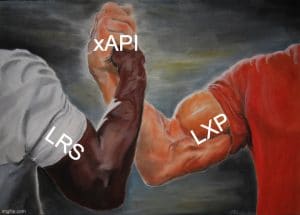Numerous studies have shown that in all occupations a certain number of hours per week are spent on tasks related to the company’s core business, but also a significant amount of time is spent on all sorts of other activities:
Emails, searching for information, repeated tasks, administrative tasks, meetings, etc.
Main activity Vs Ancillary tasks
1. Distribution in Training Organisations
A study by “Bersin by Deloitte”, conducted in 2017, shows that the amount of time spent by people working in a training organisation on tasks that do not generate value for its clients is 61%.
This means that the turnover of a training organisation is based on the remaining 39% of the activity only.

2. Distribution in the Enterprises
Another article published in 2014 by The Atlantic, “The Wasted Workday”, details that in most professions, more than half of the time is spent doing non-value added tasks. More specifically:
- 45% on the main activity
- 55% on ancillary tasks (Mail, Administration, Various interruptions)
Positive contribution of digital technology
1. Automation
A lot of working hours are spent on sending emails, on interruptions or on various administrative tasks.
Digital technology has the advantage of being able to optimise this, andQigu allows this to be done specifically for training organisations:
- Sending personalised emails (invitations, reminders, notifications)
- Reporting and analytics
- Programming of training courses
2. Reusability
Another large part of the working hours are consumed by collaboration, information retrieval, training administration etc.
On these points, Qigu provides mechanisms for :
- Centralize content
- Promote the reusability of content and training
- Bringing together training tools on a single platform (videoconferencing, specific interface for each actor, numerical reports, etc.)
Areas for improvement
1. Openness and Integration
Even if Qigu allows Training Organisations to devote more time to their core business, there will always be an inflexible share of administrative tasks (accounting, HR, sales, project management, …) which must nevertheless be ensured.
Dedicated digital tools can also help you reduce the time spent on these tasks.
To simplify all your processes, Qigu allows you to integrate all these different tools through an open API, leaving you free to use your tools while synchronising them in one place.
2. Take Action
Don’t wait any longer, time is running out!
Make an appointment with us to estimate how much time (and money) Qigu can save you money.
https://qigu.app/demande-demo/
References:
- The Atlantic – The Wasted Workday
- Bersin by Deloitte, 2017





